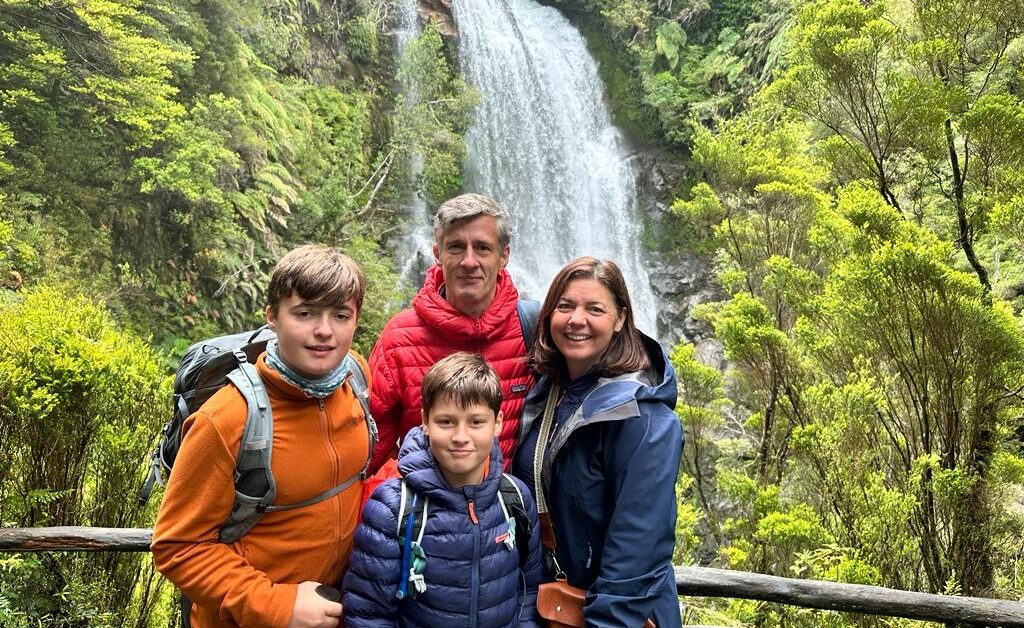The founder of a London-based travel PR agency, Mirjam Peternek-McCartney, tells Globetrender about her seven-month family sabbatical, what it’s like to homeschool on the road and the essentials they pack.
Tell us about your family.
“We are a family of four, with two boys aged ten and 14.”
What motivated you to go on a family sabbatical?
“Both me and my husband have been on sabbaticals before. In 2006 and 2007 we travelled through China and lived in Italy, which is where I had the idea to set up my travel PR agency Lemongrass. We had also both worked abroad in India and Italy many years ago. We’ve always found sabbaticals enriching, eye opening and challenging our assumptions about a country or a continent as they allow you to go deeper than a normal holiday.
“We always said that when we have children we would love to take them away for a sabbatical and travel. I guess Covid – much as it brought lots of bad stuff – was also a catalyst in saying ‘you know what, now or never’. Also our eldest is starting GCSEs next year so it really was last chance saloon.”
How long are you away for?
“We are away for seven months and will return home in spring this year.”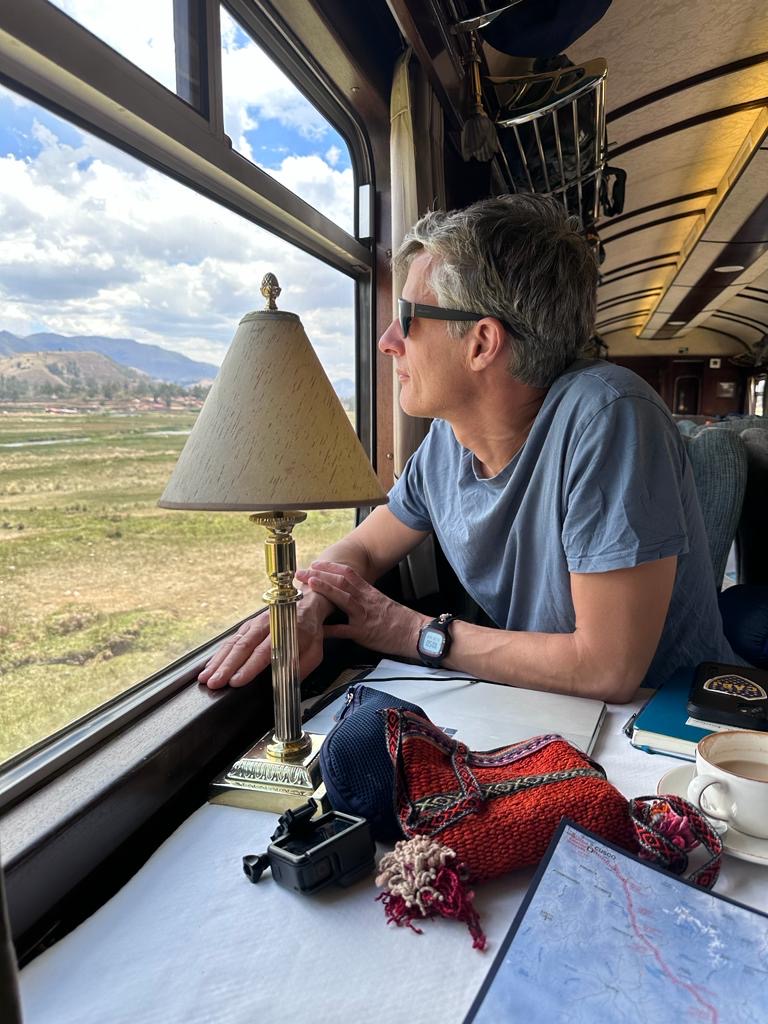
How does it work with taking your children out of school for a long period of time?
“One of our biggest worries was what the school would say and if we could keep the kids’ school places, but the school have been great. Their school motto is ‘Live adventurously’ so we were arguing we are just following the school motto. Luckily, we didn’t have to argue too hard. The teachers were very supportive and we are regularly staying in touch and the boys are giving presentations to their classmates.

“We are following the curriculum quite closely in the core subjects and have been lucky to find some great tutors back in the UK. They are teaching the kids maths and sciences, I am doing geography and history and my husband is doing English.
“But we are also worldschooling – the kids are finding a lot of things interesting and have been voluntarily working on projects such as researching mangrove forests in Colombia’s Rosario Islands, finding out more about the Incas in Peru and learning about Macaw conservation at Tambopata Research Centre in the Amazon Rainforest.”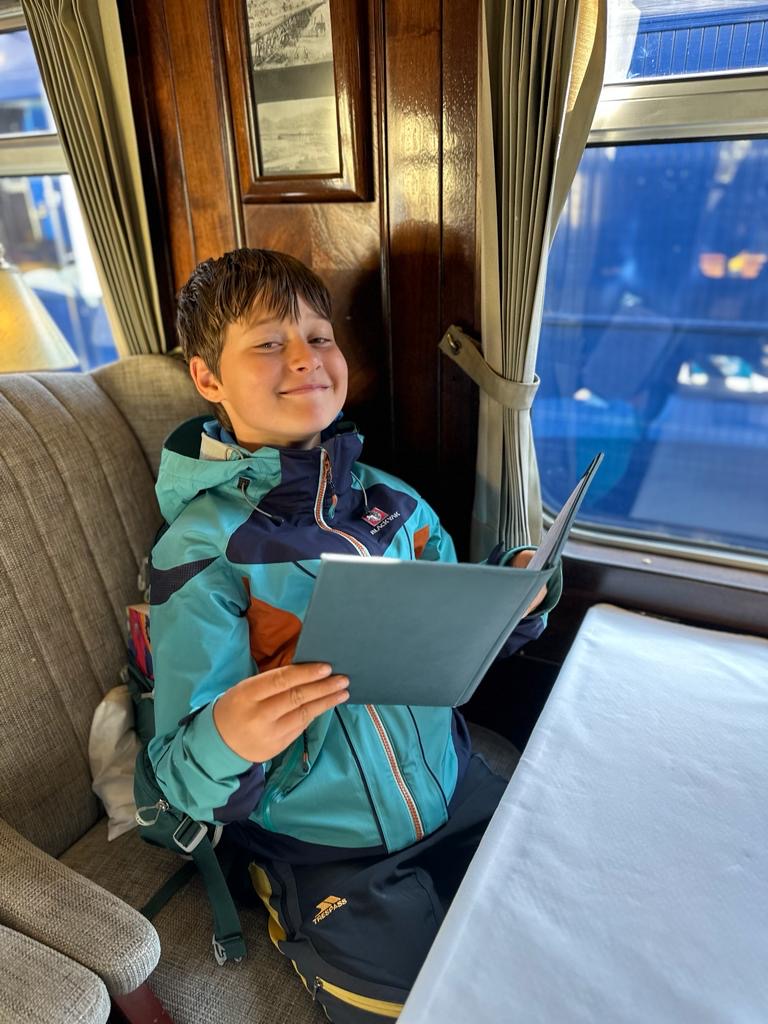
Where have you travelled so far? What next?
“We are working our way down South America from top to bottom. We started in Colombia, then went to Peru and are now driving down the length of Argentina/Chile (from Jujuy in the North all the way down to Ushuaia on the Ruta40 and the Carretera Austral). We are trying to do the trip as sustainably as possible (which brings a whole new set of challenges with it actually, as we’ve learnt) so we’ve only been taking two internal flights and have done the rest on buses, trains and now in our own car.
“In Argentina we rented a car which we are having for four months as public transport is terrible particulary in Patagonia and we wanted to go to some more remote areas like driving the entire Carretera Austral. Next up is the Carretera Austral, Tierra del Fuego and then finally going up the entire Atlantic Coast to Buenos Aires. We are curious what that’ll be like as it’s an area that’s not visited much, but rich in wildlife.”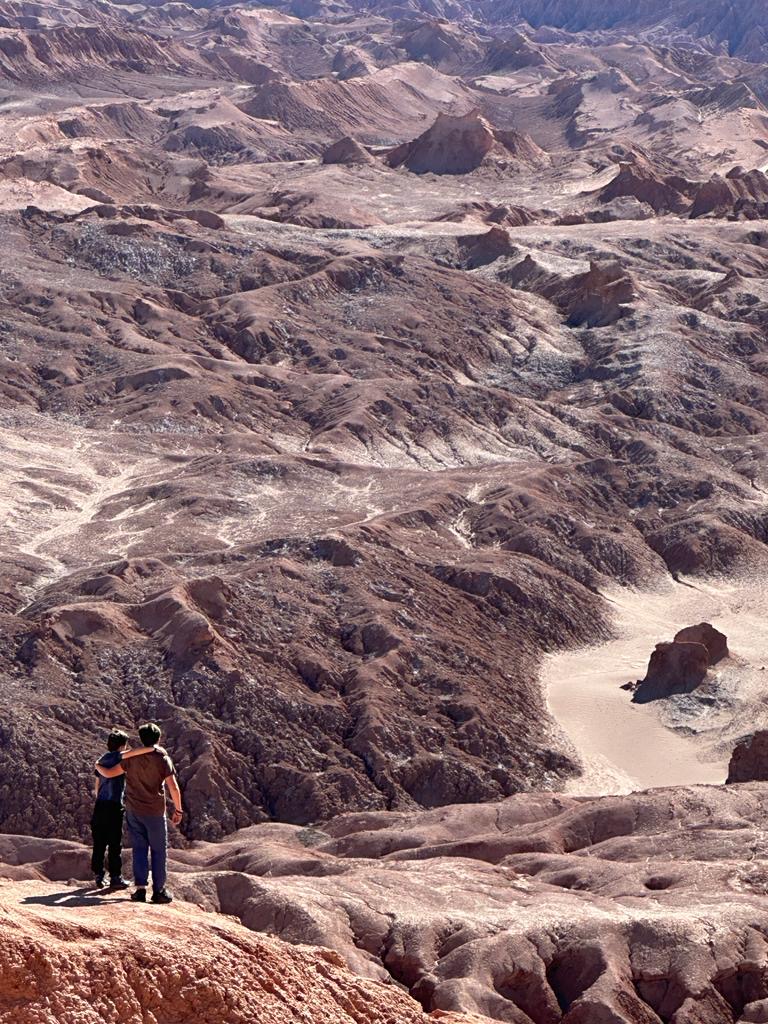
What have been some of the lows and highs so far?
“The highs have been hiking the five-day Inca Trail – Marisol Mosquera from Aracari, who knows Peru inside out, has been helping us a lot and she was adamant we hike the five-day trip and not a shorter one. We are so glad we listened. Visiting the Amazon, in particularly Tambopata Research Centre Tambopata Research Center | Rainforest Expeditions was a real eye-opener about how tourism done right can be a viable alternative to local employment that otherwise is dominated by logging and gold mining in the Amazon. Another highlight was staying at Estancia Pampa Grande, working with the gauchos, riding horses and herding cattle. The boys loved every minute.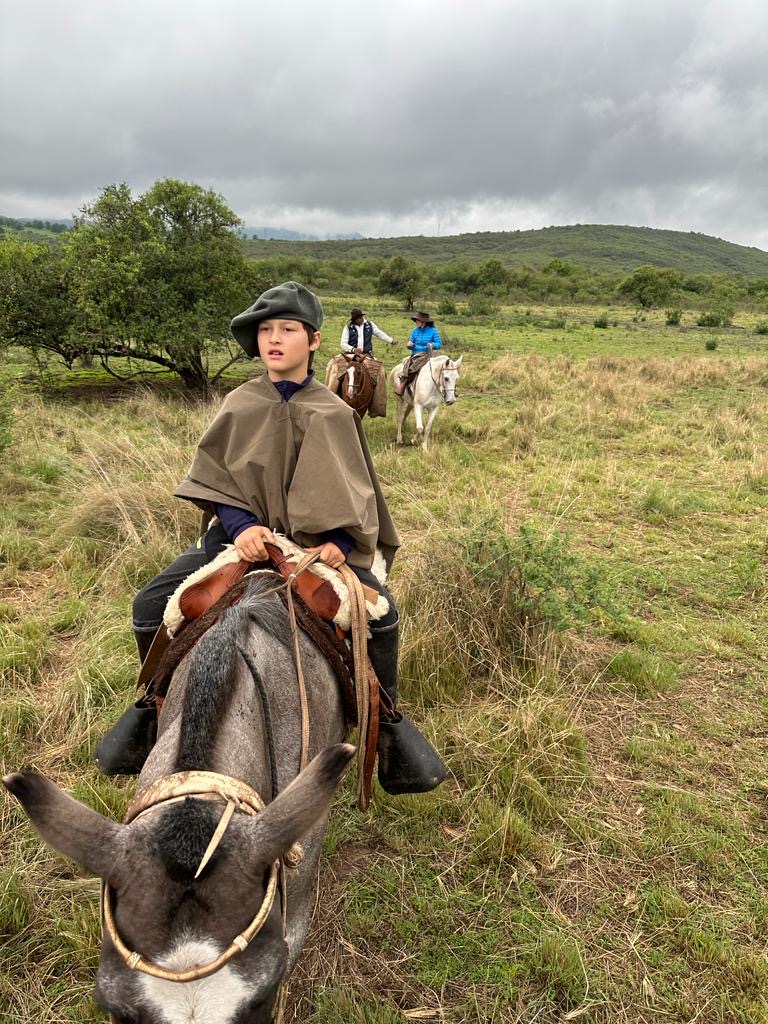 “Lows were Lake Titicaca. It made me quite sad to see how rampant overtourism has ruined not just the destination, but turned the lives of the locals into a Disney-esque dystopia. Seeing the effects of climate change on the lake, which is running low on water. I am wondering how long the locals are able to live a traditional lifestyle on their floating islands. It made me feel quite strongly that tourism to sensitive areas needs to be regulated, entry fees should be charged and the locals should have much more of a say in whether tourism should be permitted or not, and if so in what form.”
“Lows were Lake Titicaca. It made me quite sad to see how rampant overtourism has ruined not just the destination, but turned the lives of the locals into a Disney-esque dystopia. Seeing the effects of climate change on the lake, which is running low on water. I am wondering how long the locals are able to live a traditional lifestyle on their floating islands. It made me feel quite strongly that tourism to sensitive areas needs to be regulated, entry fees should be charged and the locals should have much more of a say in whether tourism should be permitted or not, and if so in what form.”
What have you learnt? What are your plans for the future – have you got a taste for a nomadic existence?
“We love our nomadic life – but I am equally looking forward to being back home. So it’s a great time to reflect and recalibrate, but I couldn’t do it forever. Several months is perfect. We are currently working on a new product offering for the business , allowing smaller travel brands that want to become more sustainable access to great PR, and the sabbatical has given me plenty of time to think and plan.”
How are you managing your work commitments as a company founder?
“We’ve been planning this with the team for a good 18 months and have been putting everything in place so that things continue to run smoothly. I am very lucky that I have Abi Best, my managing director, who’s been with the business for over a decade, whom I trust implicitly and who knows the business inside out. We’ve got a solid management team in place and so I am doing the things that can be done remotely, but otherwise letting the team get on with things.”
How have the children coped?
“They’ve absolutely loved it. The only exception was Christmas when they’ve been quite homesick. But it was interesting when they realised that what they missed most was family and friends, not presents (of which there were none this year apart from some small chocolates). Maybe that’s a good learning? Occasionally, they complain that an hour of homeschooling feels like three hours of normal school ‘because in school you can zoom out’.”
What essentials/luxuries are you travelling with?
“We are only travelling with absolute essentials. One large and one small backpack each. We’ve become good at layering clothes (if it’s cold the base layers come out), otherwise it’s two trousers, two T-shirts and two jumpers each. The school books seem to take up one rucksack already. Our luxuries are good Spotify playlists and audiobooks. Oh, and compression packing bags.”

